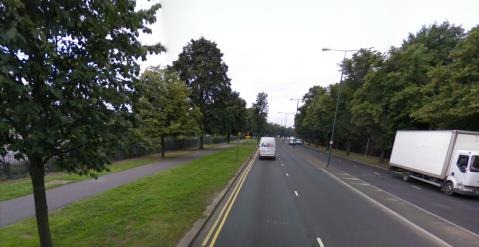As I mentioned in the previous article (Despatch), there was an interesting snippet at the end about proposals to give councils the power to control roadworks. Under what are called “lane rental” schemes, utility companies could be charged £2,500 per day to dig up the busiest roads at peak times.
Personally, I don’t think it goes far enough. They should be charged £5,000 an hour to dig up ANY road. That way, they might get some work done instead of pratting around for a couple of hours a day and installing traffic lights and lane restrictions which persist during rush hour, causing massive tailbacks.
The water and gas companies are easily the worst offenders.
They dig up the road, then spend a minimum of two days doing absolutely nothing. Meanwhile, the rest of us have to endure temporary lights – often three- or four-way – while the road is effectively blocked.
Once upon a time, they’d put a big metal sheet over the hole after they finished work for the day. They still could in most cases, since the hole is rarely more than about half a metre wide and maybe three or four metres long. No doubt Health & Safety issues are involved, though.
Also, once upon a time, they’d get the job finished in a couple of hours – often during the night. I can’t see what has changed to the extent that the same simple repairs now take at least a week, with working hours only between 10am and just after midday at best. Again, I suspect Health & Safety is involved – after all, if they can’t get enough people to stand around in yellow hi-vis jackets doing nothing, how on earth can a gas or water leak possibly get fixed?
Mind you, it isn’t JUST the water and gas people. This picture from Google shows what University Boulevard in Nottingham looked like. Until recently, that is.

Even in winter, it was one of the nicest looking roads in Nottingham, with mature Lime trees lining both sides, creating an avenue with a footpath and cycle lane for the Spandex boys to ignore completely during rush hour.
But, it isn’t like that any more. Most of the trees on the left have been felled for the bloody tram extension. It has been chaos as they closed one lane of the road – and God only knows what it will be like when they start building the tramline. Anyone who has seen any of the Nottingham tram areas will know they are concrete monstrosities. You can’t have trees near the overhead lines, it seems.
Cities which have grown around tram systems are beautiful (places like Munich and Hannover spring to mind). Cities in which tram lines have grown through the city are ugly monstrosities with huge traffic problems. And they will remain so, no matter how many Mickey Mouse green awards the city in question insists on giving to itself.
Given the carbon footprint involved in building them and powering them, the tiny number of people they can carry in proportion to the number who need to travel, and the amount of extra congestion they cause for cars during peak hours, trams are the biggest “Green Herring” of all time. And especially so in Nottingham.
you can see to be clear. You should
 you can see to be clear. You should
you can see to be clear. You should 
 had almost gone. I thought I’d be in and out reasonably quickly, but when I got to the pay desk there was a stupid bitch with a credit card that the attendant was having to phone up someone about. Judging from his rolled eyes and repeated attempts, he couldn’t get through. In the end, we all heard clearly that she’d bought just over £12 of fuel! What was the bloody point?
had almost gone. I thought I’d be in and out reasonably quickly, but when I got to the pay desk there was a stupid bitch with a credit card that the attendant was having to phone up someone about. Judging from his rolled eyes and repeated attempts, he couldn’t get through. In the end, we all heard clearly that she’d bought just over £12 of fuel! What was the bloody point?